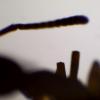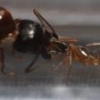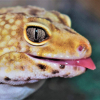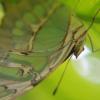This will be my first year hibernating... I've literally been in the hobby for about a month and a half at this point, and hibernating my colonies is weighing on my mind pretty heavy right now... Currently all my founding queens are still tubed (Camponotus Sayi, Camponotus Festinatus and Pogonomyrmex Barbatus), but the Pogonomyrmex are getting close to being ready to turn into a formicarium and outworld... And that leads me to several questions...
I live in Ft Worth, Texas, and there are times when the temps get sub freezing (usually our lows are in the upper 20's or lower 30's, and the highs are in the upper 40's or lower 50's, from late Nov through early Feb)... We will have times when our lows are in the teens and highs in the 30's... That gives me a hesitation about putting them in the garage... I'm not sure the garage will hold upper 40's or low 50's on it's own, and I don't want to risk freezing the colony... So, I'm looking for a plan B... Which currently consists of me blocking off a spare room upstairs and letting the room 'chill'... This would allow me to have better control of their environment through the winter, and (hopefully) keep the temp in the 50's, regardless of the temp outside.............. Unless... unless there is a warm winter trend... and then the room would naturally warm up... But that's not all that common (at least not for long periods of time in the dead of winter)...
Which leads me to my biggest question... Once you have a formicarium and an outworld, when it comes time to hibernate the colony, how do you clear out the outworld to shut things down for the winter? if I move the colony into a cooler, I wouldn't have room to move the outworld there too... so, how do you get all the workers out of there and into the formicarium?
How do others in comparable climates hibernate their colonies? How often do you check on them? Do you feed them at all? If so, how?
Finding tons of information on caring for colonies of all kinds of species, but I haven't come across any good info about exactly HOW to hibernate a colony, and the steps to do it right...




























